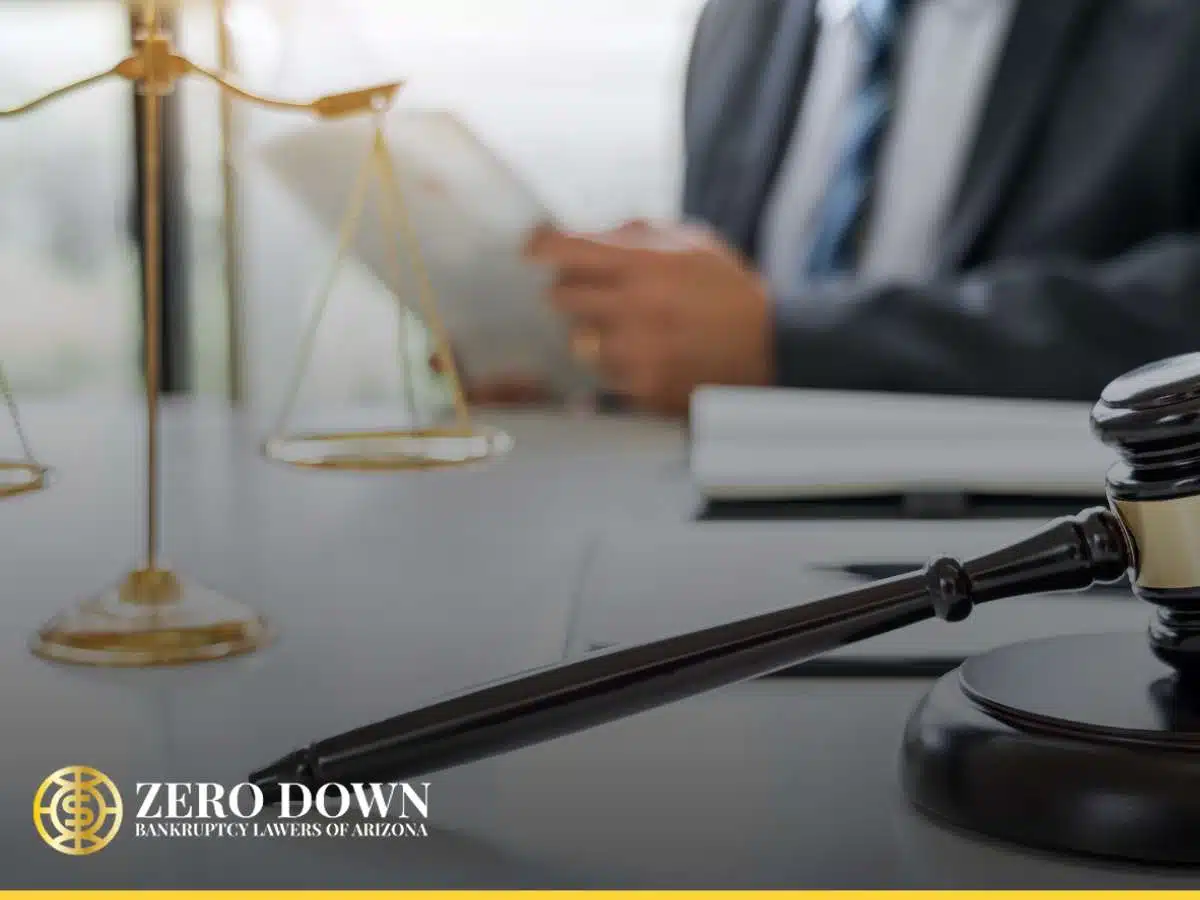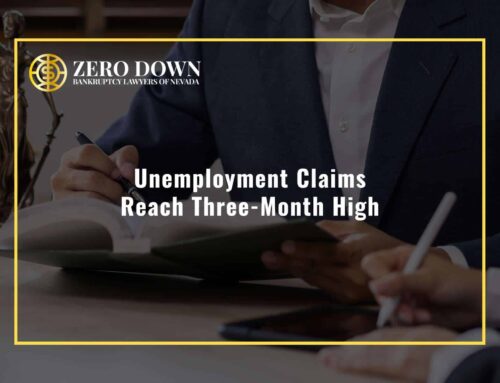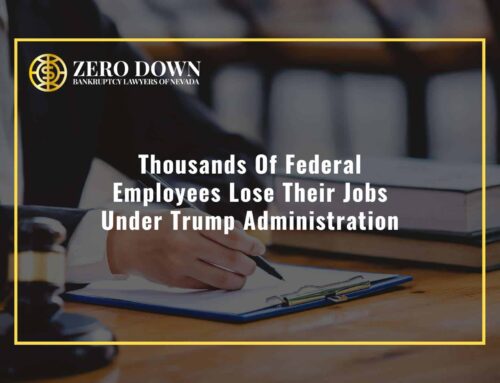Inflation in recent years has brought up the prices of most goods and services in Phoenix, and some businesses are feeling the strain just as much as individuals and households. Increasing competition, staffing difficulties, and high operating costs are some of the struggles many types of businesses experience. This can cause business owners in Phoenix and across the United States to file for bankruptcy. Bankruptcy offers several benefits, and vast protections from creditors and the opportunity to clear debts. What happens to a business that declares bankruptcy will depend on various factors, with the main one being which chapter of bankruptcy is filed. When businesses declare bankruptcy, employees lose jobs and it can impact the rest of the local economy. Now that 2023 statistics can reflect an increase in business bankruptcy filings from 2022, what will happen next in 2024? How can bankruptcy help struggling business owners get back on their feet? Read on for the answers to these questions, and if you’d like answers to your own from an experienced Phoenix bankruptcy lawyer, call 602-609-7000 to schedule your free consultation.
Business Bankruptcy Filings In 2023
As financial protections put in place to combat the economic fallout from COVID-19 expire, more people and businesses can accrue debt and potentially end up in bankruptcy court. Bankruptcy filings in general increased by 18% from 2022 to 2023 in the United States as a whole. Chapter 11 bankruptcy filings increased by a whopping 72%. Additionally, year-end bankruptcy cases, or cases filed in November or December, increased by 16%. Experts predict that filings will continue at an elevated pace, but not quite reach the levels of bankruptcy filings from before the pandemic in 2019.
Arizona’s bankruptcy rate increased in 2023 with the rest of the country, although we experienced a few slightly different trends. Our bankruptcy filings only increased by 7.2% as compared to the national rate increase of 18%. Unlike the rest of the United States, we did not see a sharp increase in chapter 11 bankruptcy filings. There was only one more chapter 11 bankruptcy filing in 2023 in Arizona than there was in 2022. That means that the increase in Arizona’s bankruptcy rate can be attributed to chapter 7 and chapter 13 filings. Chapter 7 filings increased by 7.3% and chapter 13 filings increased by 7.2% in Arizona. Out of all of Arizona’s bankruptcy cases, 3.1% of them were business filings, which represents a 0.6% increase from the 2.5% bankruptcy business rate for Arizona in 2022.
Bankruptcy Options For Business Owners
For the most part, a debtor who owns their own business will either file for chapter 7 or chapter 11 bankruptcy. If the business owner wishes to continue operating under a restructured business plan, the business owner should file for chapter 11 bankruptcy. If the business owner wishes to close down their business, they can use either chapter 7 or chapter 11 bankruptcy.
Chapter 11 Bankruptcy
When news of a business filing for bankruptcy makes headlines, it is often a chapter 11 bankruptcy filing. Chapter 11 bankruptcy can be used by businesses and individuals alike, but is most known for its unique opportunity to allow a business to reformulate and attempt to become a more profitable company after discharge. The downside is that creditors play a much more significant role than they would in the other bankruptcy chapters, especially chapter 7. In chapter 11 bankruptcy, the creditors to whom the debtor owes the most money will form a committee. The committee can vote on bankruptcy-related issues as well as larger-scale changes in the company’s business operation. However, the business can keep operating day-to-day as it normally would. Once the debtor and creditor committee can come to an agreement on how the debtor will resolve its debt, the debtor can emerge from bankruptcy. Some of the most common ways that a debtor can emerge from chapter 11 bankruptcy include selling assets and equipment, converting debt into equity, and finding new funding or a new buyer. If you are considering bankruptcy as a business owner, you probably have a lot of questions about both chapter 7 and chapter 11 bankruptcy. To schedule your free appointment with an experienced Phoenix bankruptcy lawyer, call 602-609-7000.
Chapter 7 Bankruptcy
This is the most popular form of bankruptcy when you include consumer filings in addition to business filings. It is a liquidation bankruptcy, so a debtor that uses it can’t have significantly valuable assets or money in the bank that can be used to pay off debts. In Phoenix, a chapter 7 bankruptcy debtor’s household income must fall below Arizona’s median household income to qualify. This number can be adjusted based on the number of people (spouse and children under the age of 18) in the household. If the household income is too high to qualify using this method, the debtor can show they don’t have enough disposable monthly income to pay off their debts using the means test. When a business is operating in the negative, there is a good chance that it will qualify for chapter 7 bankruptcy.
It is crucial that a chapter 7 debtor calculate their income correctly and display it accurately in their bankruptcy petition. Mistakes could cause issues like temporary lapses in the automatic stay, debts not being cleared by the filing, needing to re-file under a different chapter, and more. These consequences can be even more disastrous when the bankruptcy debtor owns their own business. Don’t leave anything to chance if you are considering a business bankruptcy filing in the Phoenix area- call 602-609-7000 for your free consultation with an experienced member of our bankruptcy team.
The Biggest Names To Declare Bankruptcy In 2023
Many of the largest companies that declared bankruptcy in 2023 have one or more locations in Arizona, meaning they can affect our state’s economy. Not all of these businesses will close due to filing for bankruptcy, but may just need to re-strategize due to falling profits. Some of the biggest names that declared bankruptcy in 2023 include:
- Bed Bath & Beyond: This home goods retailer faced too much competition from rivals like Amazon and Walmart and began closing down its brick-and-mortar locations. Since filing for bankruptcy, this chain has refocused on online sales to reduce costs.
- Party City: The party supply store declared bankruptcy early in 2023. It was able to reduce its debts by $1.7 billion in a chapter 11 bankruptcy filing.
- Tuesday Morning: This discount home goods store has many locations at shopping centers throughout the Valley. It announced in May 2023 that it would be closing all 200 of its locations.
- RiteAid: The pharmacy chain has numerous rivals and lawsuit settlements related to the opioid pandemic. It will close some locations through its bankruptcy and also secured $3.5 billion in funding.
Learn More About Bankruptcy With Our Phoenix Debt Relief Team
Bankruptcy can be a stressful experience but it can also be a stress reliever. You may find yourself sleeping much easier when you know your debts are accounted for and wiped away by a bankruptcy filing. Bankruptcy can even give you an opportunity to rebuild your credit and open new doors. When you’re ready to learn more about the process with your free phone consultation, our lawyers are standing by to answer your questions. See if you qualify to file with our Zero Down payment plan option. Get started today by calling 602-609-7000 or contact us today!
Arizona Offices
Phoenix Location:
343 W Roosevelt Street, Suite #100
Phoenix, AZ 85003
Email: [email protected]
Phone: 602-609-7000
Mesa Location:
1731 West Baseline Rd., Suite 101
Mesa, AZ 85202
Email: [email protected]
Glendale Location:
20325 N 51st Avenue, Suite #134
Glendale, AZ 85308
Email: [email protected]
Tucson Location:
2 East Congress, Suite #900
Tucson, AZ 85701
Email: [email protected]











